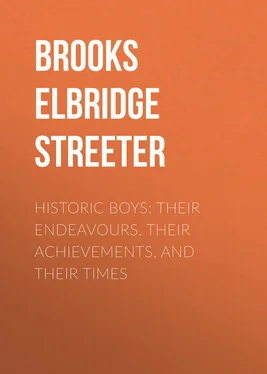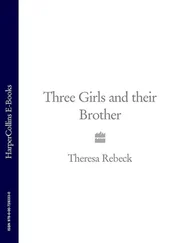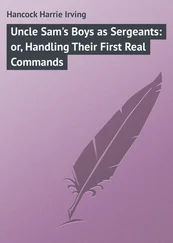Elbridge Brooks - Historic Boys - Their Endeavours, Their Achievements, and Their Times
Здесь есть возможность читать онлайн «Elbridge Brooks - Historic Boys - Their Endeavours, Their Achievements, and Their Times» — ознакомительный отрывок электронной книги совершенно бесплатно, а после прочтения отрывка купить полную версию. В некоторых случаях можно слушать аудио, скачать через торрент в формате fb2 и присутствует краткое содержание. ISBN: , Жанр: foreign_antique, foreign_prose, Биографии и Мемуары, на английском языке. Описание произведения, (предисловие) а так же отзывы посетителей доступны на портале библиотеки ЛибКат.
- Название:Historic Boys: Their Endeavours, Their Achievements, and Their Times
- Автор:
- Жанр:
- Год:неизвестен
- ISBN:http://www.gutenberg.org/ebooks/27157
- Рейтинг книги:3 / 5. Голосов: 1
-
Избранное:Добавить в избранное
- Отзывы:
-
Ваша оценка:
- 60
- 1
- 2
- 3
- 4
- 5
Historic Boys: Their Endeavours, Their Achievements, and Their Times: краткое содержание, описание и аннотация
Предлагаем к чтению аннотацию, описание, краткое содержание или предисловие (зависит от того, что написал сам автор книги «Historic Boys: Their Endeavours, Their Achievements, and Their Times»). Если вы не нашли необходимую информацию о книге — напишите в комментариях, мы постараемся отыскать её.
Historic Boys: Their Endeavours, Their Achievements, and Their Times — читать онлайн ознакомительный отрывок
Ниже представлен текст книги, разбитый по страницам. Система сохранения места последней прочитанной страницы, позволяет с удобством читать онлайн бесплатно книгу «Historic Boys: Their Endeavours, Their Achievements, and Their Times», без необходимости каждый раз заново искать на чём Вы остановились. Поставьте закладку, и сможете в любой момент перейти на страницу, на которой закончили чтение.
Интервал:
Закладка:
"Hear then, Mahon, King of Thomond; hear thou and all thy clan, the words of Ivar, the son of Sitric," came the stern warning of the Danish herald. "Thus says the king: I will gather against thee a greater muster and hosting, and I will so ravage and destroy the Clan of Cas that there shall not be left of ye one man to guide a horse's head across a ford, an abbot or a venerable person within the four corners of Munster who shall not be utterly destroyed or brought under subjection to me, Ivar the king!"
"Tell thy master," said Mahon the King, unmoved by this terrible threat, "that the Clan of Cas defy his boastful words, and will show in battle which are lords of Erin."
"And tell thy master," said his brother, "that Brian the outlaw will come to Limerick not bound with chains, but to bind them."
The Danish power was strong and terrible, but the action of the two valiant brothers was swift and their example was inspiriting. Clansmen and vassals flocked to their standard, and a great and warlike host gathered in old Cashel. Brian led them to battle, and near a willow forest, close to the present town of Tipperary, the opposing forces met in a battle that lasted "from sunrise to mid-day." And the sun-burst banner of the ancient kings streamed victorious over a conquered field, and the hosts of the Danes were routed. From Tipperary to Limerick, Brian pursued the flying enemy; and capturing Limerick, took therefrom great stores of booty and many prisoners; and the queer old Irish record thus briefly tells the terrible story of young Brian's vengeance – a story that fittingly shows us the cruel customs of those savage days of old, days now fortunately gone for ever: "The fort and the good town he reduced to a cloud of smoke and to red fire afterward. The whole of the captives were collected on the hills of Saingel, and every one that was fit for war was killed, and every one that was fit for a slave was enslaved."
And from the day of Limerick's downfall the star of Ireland brightened, as in battle after battle, Brian Boru, 5 5 Boru , or Borumha , the tribute; therefore "Brian of the Tribute."
the wise and valiant young chieftain, was hailed as victor and deliverer from sea to sea.
But now he is a lad no longer, and the story of the boy chieftain gives place to the record of the valiant soldier and the able king. For upon the death of his brother Mahon, in the year 976, Brian became King of Thomond, of Munster, and Cashel. Then uniting the rival clans and tribes under his sovereign rule, he was crowned at Tara, in the year 1000, "Ard-righ," or "High King of Erinn." The reign of this great king of Ireland was peaceful and prosperous. He built churches, fostered learning, made bridges and causeways, and constructed a road around the coast of the whole kingdom. In his palace at Kincora, near the old dun of his father, King Kennedy, by the ford of Killaloe, he "dispensed a royal hospitality, administered a rigid and impartial justice, and so continued in prosperity for the rest of his reign, having been at his death thirty-eight years King of Munster and fifteen years Sovereign of all Ireland."
So the boy chieftain came to be King of Ireland, and the story of his death is as full of interest and glory as the record of his boyish deeds. For Brian grew to be an old, old man, and the Danes and some of the restless Irishmen whom he had brought under his sway revolted against his rule. So the "grand old king of ninety years" led his armies out from the tree-shaded ramparts of royal Kincora, and meeting the enemy on the plains of Dublin, fought on Friday, April 23, 1014, near the little fishing station of Clontarf, the "last and most terrible struggle of Northman and Gael, of Pagan and Christian, on Irish soil." It was a bloody day for Ireland; but though the aged king and four of his six sons, with eleven thousand of his followers were slain on that fatal field, the Danes were utterly routed, and the battle of Clontarf freed Ireland forever from their invasions and tyrannies.
"Remember the glories of Brian the brave,
Though the days of the hero are o'er;
Though lost to Mononia and cold in the grave,
He returns to Kincora no more!
That star of the field, which so often has poured
Its beam on the battle, is set;
But enough of its glory remains on each sword
To light us to victory yet!"
So sings Thomas Moore in one of his inspiring "Irish Melodies"; and when hereafter you hear or read of Brian Boru, remember him not only as Ireland's greatest king, but also as the dauntless lad who held the ford at Killaloe, and preferred the privations of an outlaw's life to a disgraceful peace; and who, dying an old, old man, still kept his love of country undiminished, and sealed with his blood the liberty of his native land, declaring, as the poet Moore puts it in his glowing verse:
"No, Freedom! whose smiles we shall never resign,
Go tell our invaders, the Danes,
That 't is sweeter to bleed for an age at thy shrines
Than to sleep but a moment in chains!"
Kincora, the royal home of Brian the King, is now so lost in ruins that travellers cannot tell the throne-room from the cow-house; Cashel's high rock is deserted and dismantled; and on the hill of Tara the palace of the ancient Irish kings is but a grass-grown mound. But, though palaces crumble and nations decay, the remembrance of truth and valor and glowing patriotism lives on forever, and to the boys and girls of this more favored time the stories of noble lives and glorious deeds come as a priceless legacy, bidding them be stout-hearted in the face of danger and strong-souled in spite of temptation. So to every lover of daring deeds and loyal lives time cannot dim the shining record of the great King of Ireland, Brian Boru – Brian of Munster: the Boy Chieftain.
III
OLAF OF NORWAY: THE BOY VIKING
Old Rane, the helmsman, whose fierce mustaches and shaggy shoulder-mantle made him look like some grim old northern wolf, held high in air the great bison-horn filled with foaming mead.
"Skoal to the Viking! Hael; was-hael!" 6 6 "Hail and Health to the Viking!"
rose his exultant shout. From a hundred sturdy throats the cry re-echoed till the vaulted hall of the Swedemen's conquered castle rang again.
"Skoal to the Viking! Hael; was-hael!" and in the centre of that throng of mail-clad men and tossing spears, standing firm and fearless upon the interlocked and uplifted shields of three stalwart fighting-men, a stout-limbed lad of scarce thirteen, with flowing light-brown hair and flushed and eager face, brandished his sword vigorously in acknowledgment of the jubilant shout that rang once again through the dark and smoke-stained hall, "Was-hael to the sea-wolf's son! Skoal to Olaf the King!"
Then above of the din and clash of shouting and of steel rose the voice of Sigvat the saga-man, or song-man of the young viking, singing loud and sturdily:
"Olaf the King is on his cruise,
His blue steel staining,
Rich booty gaining,
And all men trembling at the news.
Up, war-wolf's brood! our young fir's name
O'ertops the forest trees in fame,
Our stout young Olaf knows no fear.
Though fell the fray,
He's blithe and gay,
And warriors fall beneath his spear.
Who can't defend the wealth they have
Must die or share with the rover brave!"
A fierce and warlike song, boys and girls, to raise in honor of so young a lad. But those were fierce and warlike days when men were stirred by the recital of bold and daring deeds – those old, old days, eight hundred years ago, when Olaf, the boy viking, the pirate chief of a hundred mail-clad men, stood upon the uplifted shields of his exultant fighting-men in the grim and smoke-stained hall of the gray castle of captured Sigtun, oldest of Swedish cities.
Читать дальшеИнтервал:
Закладка:
Похожие книги на «Historic Boys: Their Endeavours, Their Achievements, and Their Times»
Представляем Вашему вниманию похожие книги на «Historic Boys: Their Endeavours, Their Achievements, and Their Times» списком для выбора. Мы отобрали схожую по названию и смыслу литературу в надежде предоставить читателям больше вариантов отыскать новые, интересные, ещё непрочитанные произведения.
Обсуждение, отзывы о книге «Historic Boys: Their Endeavours, Their Achievements, and Their Times» и просто собственные мнения читателей. Оставьте ваши комментарии, напишите, что Вы думаете о произведении, его смысле или главных героях. Укажите что конкретно понравилось, а что нет, и почему Вы так считаете.












